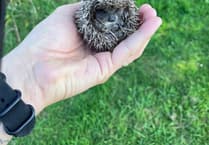SEAGRASS meadows are quietly returning to the waters off Devon and Cornwall, offering hope for the recovery of one of the UK’s most valuable yet fragile marine habitats.
Once in decline due to pollution and coastal disturbance, these lush underwater ecosystems are now showing signs of regrowth – thanks in part to cleaner water and targeted conservation efforts.
South West Water has launched a new research initiative in partnership with the University of Exeter’s Centre for Resilience in Environment, Water and Waste, the Plymouth Marine Laboratory and the Ocean Conservation Trust.
The study will assess the health of seagrass beds in key estuaries, from the River Tamar to the River Exe, and explore how recent infrastructure investments may be helping their recovery.
“This work represents an important step in understanding the impacts of wastewater on coastal habitats,” said Dr Chris Laing, lead researcher from the University of Exeter. “Seagrass meadows are both critical to protect and excellent indicators of overall marine health.”
In recent years, extensive seagrass beds have been rediscovered in the region – among the largest in the UK – highlighting the ecological importance of the South West coast. Seagrass stores carbon, filters water and provides shelter for marine life from seahorses to small sharks.
South West Water has invested heavily in upgrading treatment facilities and implementing its “Upstream Thinking” programme, which works with farmers to reduce pollution at the source. Now, researchers aim to understand whether these efforts are contributing to the seagrass comeback – and how to build on them.
“Seagrass is one of nature’s quiet heroes,” said Carolyn Cadman, director of natural resources and net zero at South West Water. “It helps clean our seas, stores carbon to help fight climate change and it shelters marine life.”
The two-year investigation will inform South West Water’s next investment cycle and could pave the way for further restoration projects.





Comments
This article has no comments yet. Be the first to leave a comment.